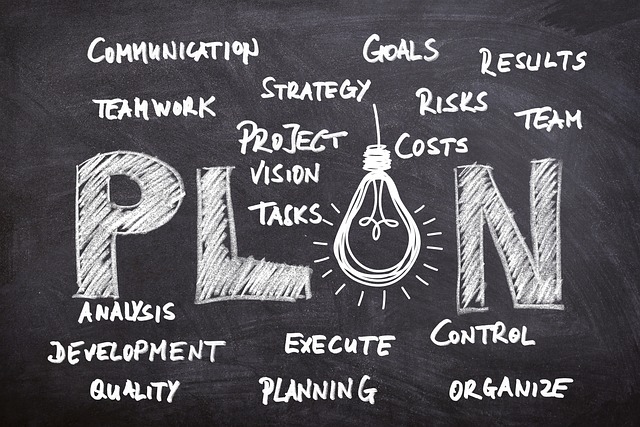Understanding Sales Strategy: The Foundation of Success
Every thriving business recognizes that a well-crafted sales strategy serves as the backbone of its operations. This strategy isn’t merely a document on a shelf—it’s a dynamic framework guiding daily actions and long-term goals. What makes a sales strategy effective? First, it needs to align with the overall business objectives. Without this alignment, efforts may scatter, leading to wasted resources and unachieved targets. For instance, if a company focuses on cutting costs but the sales strategy promotes high-end products, confusion arises among the sales team, potential customers, and stakeholders.
Moreover, an effective sales strategy encompasses thorough market research. Companies must understand who their ideal customers are, what motivates them, and the problems they face. By diving deep into the customer personas, businesses can tailor their messages, offerings, and sales techniques. This understanding helps sales teams position their products or services as solutions to real problems, enhancing the likelihood of conversions. The competitive landscape also plays a crucial role. Analyzing competitors allows a company to identify gaps in the market, leverage strengths, and improve weaknesses. This comprehensive understanding sets the stage for a more effective sales strategy.
Defining Clear Objectives: Setting the Path Forward
The crux of an effective sales strategy lies in the clarity of its objectives. Setting specific, measurable, achievable, relevant, and time-bound (SMART) objectives gives the sales team a clear target. For instance, instead of aiming to “increase sales,” a more effective goal would be “to increase sales by 20% in the next quarter.” This detail allows sales representatives to create actionable plans and track their progress over time.
Furthermore, having clear objectives contributes to motivation and accountability. When every team member knows what they are striving for, they become more engaged in the process. In addition, regularly reviewing these objectives helps teams adapt to changes in the marketplace or internal challenges. If a specific objective is not meeting expectations, it’s crucial to analyze why and to pivot accordingly. This responsiveness to the real-time business environment transforms a static plan into a living, breathing strategy, thereby increasing overall effectiveness.
Identifying Target Markets: The Key to Sales Strategy
Identifying target markets is pivotal to crafting an effective sales strategy. It’s essential to go beyond demographic data and delve into psychographic factors, such as consumer behavior, lifestyle choices, and values. Businesses that understand their buyers’ motivations can create precise messaging that resonates with them. For example, if the target demographic prioritizes sustainability, highlighting eco-friendly practices in your products can foster a deeper connection.
Also, developing customer personas can be hugely beneficial. By outlining the challenges, fears, and desires of potential customers, your sales team can better empathize with them. This connection leads to more meaningful conversations rather than generic sales pitches. Using tools like surveys, interviews, and social media analytics can offer rich insights into your target audience, allowing businesses to refine their messaging and improve customer engagement, ultimately enhancing the effectiveness of the sales strategy.
Building the Sales Funnel: Guidance Through the Buyer’s Journey
A well-defined sales funnel serves as a roadmap for potential customers, guiding them from awareness to purchase. The three main stages of a sales funnel are awareness, consideration, and decision. At the awareness stage, potential customers first learn about your brand. Hence, this is where strategic marketing efforts should focus, utilizing content marketing, social media, and SEO to attract attention.
Once awareness is established, it’s crucial to educate and nurture leads in the consideration phase. Providing valuable information through case studies, webinars, or testimonials cultivates trust and positions your business as a thought leader. Technological tools like Customer Relationship Management (CRM) software can help track interactions and tailor communications based on customer engagement levels. This customization ensures that potential buyers feel valued, which increases the likelihood of conversion at the decision stage.
Training and Developing the Sales Team: Equipping for Success
An effective sales strategy hinges on the competency and confidence of your sales team. Investing in continuous training creates a knowledgeable workforce adept at closing deals. A well-rounded training program should include product knowledge, sales techniques, and soft skills such as communication and negotiation. Role-playing various sales scenarios helps representatives practice their pitches and refine their responses to objections.
Moreover, fostering a supportive culture encourages collaboration. Regular meetings where teams can share insights and experiences can bolster morale and reveal new approaches to challenges. When sales professionals feel confident and supported, they’re more likely to engage with customers authentically, ultimately benefiting the overall effectiveness of the sales strategy.
Leveraging Technology: Tools to Enhance Sales Strategy Effectiveness
In today’s digital landscape, technology acts as an essential catalyst in sales strategies. Various sales enablement tools, CRM systems, and data analytics software can significantly streamline processes. For instance, CRM platforms help track leads, manage customer relationships, and analyze sales performance in real time. This automation frees up sales representatives to focus on building relationships rather than spending their time on administrative tasks.
Additionally, analytics tools can provide valuable insights. They help assess customer behavior patterns and preferences, which can inform product offerings and messaging. Implementing artificial intelligence can refine targeting efforts and even suggest the best times for contacting potential buyers. As technology continues to evolve, staying updated with the latest tools ensures that your sales strategy remains relevant and vastly effective.
Evaluating and Adjusting the Sales Strategy: Continuous Improvement
The marketplace is in a constant state of flux, and so should be your sales strategy. Regular evaluation is vital for determining what elements drive success and which aspects fall short. An effective method for gauging performance involves establishing Key Performance Indicators (KPIs) relevant to your goals. Tracking these KPIs allows teams to analyze results, making data-driven decisions regarding adjustments.
Feedback from the sales team also plays a crucial role. They interact directly with customers and understand firsthand the challenges faced while selling products or services. Encouraging open communication creates an environment ripe for innovation. Conducting quarterly reviews helps identify trends, pivot around market changes, and refine techniques to boost overall business performance. By embracing a mindset of continuous improvement, businesses can ensure their sales strategy remains competitive and effective.
FAQ
1. What is a sales strategy?
A sales strategy is a plan that outlines how a business will sell its products or services to achieve specific goals. It includes defining target markets, setting clear objectives, and establishing tactics to reach potential customers effectively.
2. Why is having a well-defined sales strategy important?
A well-defined sales strategy is crucial because it provides direction and focus for the sales team. It helps align the sales efforts with business goals, ensuring that resources are allocated effectively and that team members understand their roles in achieving success.
3. How can technology enhance a sales strategy?
Technology enhances a sales strategy by automating tasks, providing real-time data analysis, and improving customer relationship management. Tools such as CRM systems help organize customer information and facilitate better targeting, which leads to increased efficiency and effectiveness.
4. What role does training play in sales success?
Training plays a vital role in sales success as it equips the sales team with necessary skills, product knowledge, and techniques to engage effectively with customers. Continuous development fosters confidence and helps adapt to changing market conditions.
5. How often should a sales strategy be evaluated or adjusted?
A sales strategy should be evaluated regularly, typically on a quarterly basis. Frequent assessments allow businesses to identify trends, address challenges promptly, and make necessary adjustments to stay competitive and achieve business objectives.



